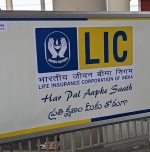Things to know about zero-cost term insurance plan

Term plans are regular insurance plans. These plans offer a death benefit during the policy term. In other words, a term plan aims to protect the family of a policyholder financially on his/her sudden demise.
The nominee will receive the benefits on the death of the policyholder. However, they do not provide maturity benefits if the policyholder survives.
Now, a new variant of the term plan, the zero-cost term plan, has been introduced. This plan allows policyholders to exit the policy at a certain age and get back the entire premium amount (excluding GST) paid by them.
These zero-cost term plans have lower premiums than return of premium (ROP) term insurance plans. Based on the terms and conditions of the insurer, the policyholder can get the entire paid premium amount back.
Max Life, Bajaj Allianz, HDFC etc., offer zero-cost term plans. The minimum and maximum age limits vary with each insurer. Also, the maximum waiting period differs.
A zero-cost term plan provides the death benefits like a regular term plan. At the same time, it also offers the benefits of the return of a premium term plan, as the policyholder can exit the plan and get the entire paid premium back.
Compared to ROP term insurance plans, zero-cost term plans have around 50% cheaper premiums. So, many people can afford them.
Moreover, these plans are suitable for those who want to pay a small premium. Policyholders can invest in monthly or quarterly installments.
However, zero-cost term plans have the following limitations:
- Though the plan is termed zero cost, it involves some administrative costs and taxes. The policyholder will not be able to receive this amount. They will get the premium amount back, excluding GST and other costs. So, policyholders must check the terms and conditions while buying the policy.
- Only a few insurance companies offer the plan in India.
- Most of the available plans are offered only to people aged below 45.
- Compared to a traditional term policy, the premium for zero cost term plan is more. The latter is around 25% more expensive than the former.
Photo by Towfiqu barbhuiya on Unsplash (Free for commercial use)
Image Reference: https://unsplash.com/photos/jpqyfK7GB4w










Leave a Reply